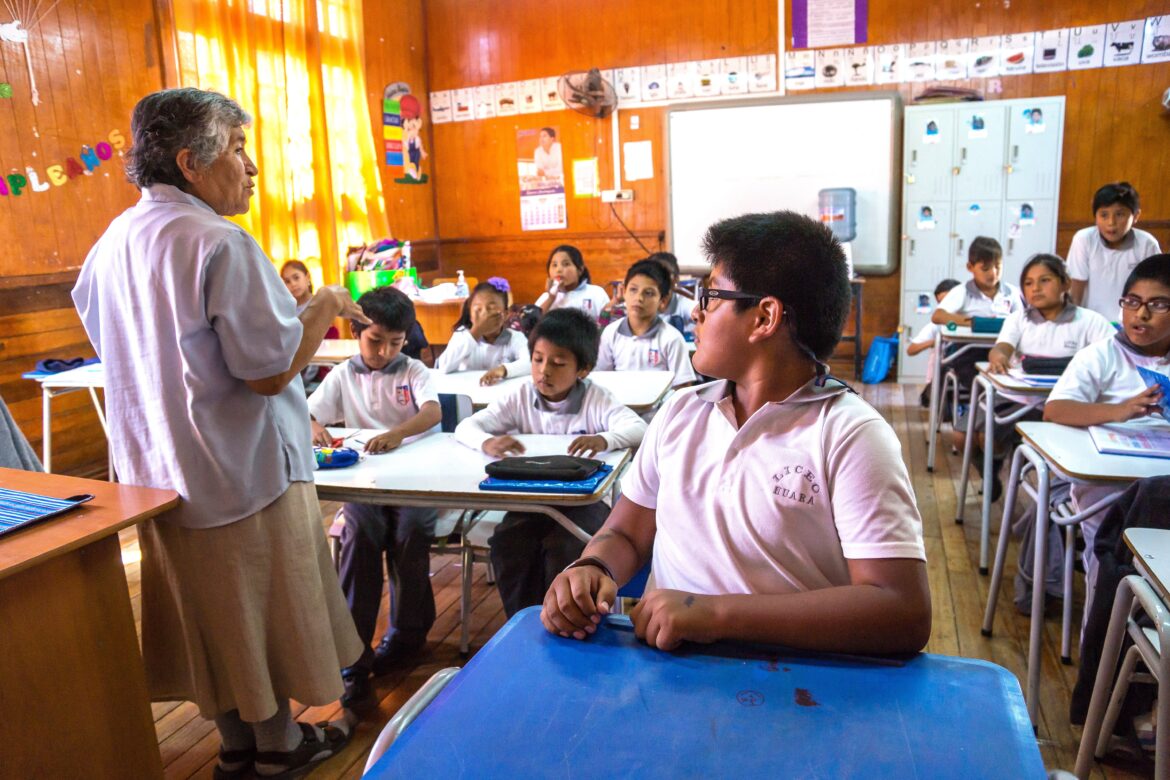
Financial obstacles continue to threaten the teaching profession’s future all over the world, affecting education systems’ inclusivity and equity negatively. There are numerous gaps in the profession, both in terms of the number of qualified teachers and the funding available to assist both new and existing teachers. Through the Santiago Consensus, education stakeholders are urged to recognize the severity and the urgency of the crisis affecting the teaching profession while advocating for stronger and comprehensive policies.
Can we afford not to act?
A staggering 44 million new primary and secondary teachers are needed worldwide to provide quality education for all by 2030 with cost estimations nearing US$120 billion annually.
Regions experiencing rapid population growth face the greatest projected shortages, driven by the need to create new teaching positions. Overcrowded classrooms have become an acute problem in low-income countries where the teacher-to-pupil ratio is 52 to 1 compared to 15 to 1 in high-income countries.
Engaging the international community in a process of consultation The Santiago Consensus sets out a shared vision and priorities for strengthening the teaching profession worldwide.
It was developed under UNESCO’s leadership through a broad consultative process involving the Teacher Task Force network, the SDG 4–Education 2030 High-Level Steering Committee, youth networks, and teachers and their organizations. It urges swift action to strengthen teacher policies and reaffirms the significance of teachers as the educational foundation. The consensus was adopted following the World Summit on Teachers: a 2-day high-level gathering of political leaders, teacher representatives, international organizations and key education stakeholders organized by UNESCO and the government of Chile.
The Summit was a turning point in international debate, bringing up issues like teacher shortages, funding and policy alignment, and the rapidly changing digital era. Putting money into teachers for long-term benefits The Santiago Consensus outlines a range of commitments from governments and education stakeholders toward achieving the same goal: upholding education systems that benefit the well-being, professional development and various capabilities of teachers.
Sustainable financing has emerged as one of the most pressing challenges associated with the teaching profession. We must advocate for accountability and transparency going forward. Building on this shared understanding, the Teacher Task Force used the Summit to amplify this call to action. It attended sessions on funding and launched a new paper on costing and financing the teaching profession as a strategic education investment, which it co-authored with UNESCO. The paper emphasizes that achieving Sustainable Development Goal (SDG) 4 necessitates sustainable funding of the teaching profession. It highlights the challenges and opportunities associated with sustainable investment in teachers and calls for renewed political commitment as well as strategic, evidence-based policy action to guarantee more effective budgeting. Financing accountability and fairness Turning from strategy to implementation, the paper also stresses the importance of mobilizing domestic resources for teachers by prioritizing education in national budgets and enshrining legal safeguards for education financing through a legally mandated minimum budget allocation.
Donors and international partners are encouraged to promote collective bargaining for equitable salary structures, comprehensive benefits, and protection against precarious employment arrangements, as well as to strengthen coordination at the national and global levels. This message is in line with the Compromiso de Sevilla, which says that “adequate financing to ensure inclusive, equitable, and quality education for all” is supported in the document that came out of the Fourth International Conference on Financing for Development. Implementing the Santiago Consensus SDG 4, which aims to “ensure inclusive and equitable quality education and promote lifelong learning opportunities for all,” is currently off track. We must develop long-term investment strategies that promote equitable recruitment, fair compensation, ongoing professional development, and improved working conditions as a global education community. Without bold financial commitments, it is impossible to achieve this shared objective of universal education. The replenishment campaign launched by GPE aims to end the global teaching and learning crisis and restock the organization’s funds earmarked for quality education for all. Co-hosted by Nigeria and Italy, GPE’s 5th financing campaign has set ambitious targets: raise $5 billion for the GPE fund and unlock an additional $10 billion in cofinancing from development banks, bilateral donors, the private sector and philanthropic partners.
These objectives would have a major impact on education systems in up to 96 countries and territories with low or middle incomes if they were achieved.
Collective action for teachers, with teachers
Teaching should be reimagined as a collaborative, lifelong journey based on trust, respect, and investment, according to the Santiago Consensus, a global call to action. The creation of high-quality teacher policies that attract, support, and retain dedicated educators must be guided by the voices of teachers and youth engagement. To make those policies a reality, bold international cooperation and sustainable financing are needed now. Together, we can ensure that every teacher is empowered, every learner inspired, and every classroom becomes a space of inclusion, equity, peace and hope. Let’s turn the commitments of Santiago into collective action for teachers, with teachers.

